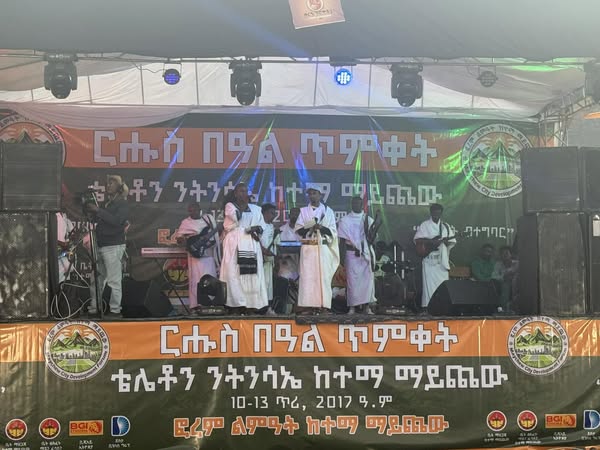Mekelle/Tel Aviv/Nairobi/Pretoria/London
Ethiopia Urged to Crack Down on TPLF Hardliners Amid Mounting Security Concerns
An independent policy advisory group has issued a stark warning to the Ethiopian federal government, calling for decisive legal and financial action against what it describes as a “hardline TPLF network” accused of criminal and foreign-backed collusion.
The Horn of Africa Geopolitical Review (HAGR), drawing on consultations with more than 10,000 participants inside Tigray and across the global
diaspora, released an executive briefing outlining what it calls “critical concerns and urgent recommendations” for Ethiopian authorities.
According to the report, respondents expressed “overwhelming frustration” with what they view as federal inaction in confronting an entrenched network of illicit actors allegedly linked to elements of the outlawed Tigray People’s Liberation Front (TPLF). The document warns that failure to act could lead to deepening instability, erosion of federal legitimacy, and greater opportunities for collusion with hostile foreign powers.
Key Criticisms of Federal Response
The briefing highlights six areas of concern, including delays in enforcing existing laws, selective prosecutions, and what it describes as weak use of sanctions and travel bans. Respondents also cited cross-border collusion involving Eritrea, Egypt, Amhara extremists, and Fano militias, along with impunity for serious crimes such as illegal mining, trafficking, kidnappings, and land grabs.
Operational gaps in customs, banking oversight, and passport issuance were also flagged as enabling illicit financial flows and the concealment of stolen assets. Failures in supporting displaced civilians and incomplete implementation of the Cessation of Hostilities Agreement (CoHA) were further identified as compounding humanitarian and security risks.
Recommended Measures
HAGR urges the federal government to fully implement the recently passed Asset Recovery Proclamation No. 1364/2025, describing it as a powerful but underused legal tool. The group calls for the creation of a multi-agency task force to trace, freeze, and recover illicit assets while strengthening anti-money laundering (AML) and know-your-customer (KYC) compliance within Ethiopia’s banking sector.
Other recommendations include:
• Travel and Diplomatic Actions: Revoking passports and imposing travel bans on identified perpetrators while coordinating with foreign governments to deny visas and freeze offshore assets.
• Criminal Prosecutions: Pursuing charges related to illegal mining, trafficking, and foreign collusion, including the use of INTERPOL red notices.
• Transparency and Public Engagement: Publicly reporting asset seizures and sanctions, creating victim-centered reporting channels, and protecting witnesses.
Public Sentiment
Survey results from the 10,000-plus respondents indicate strong support for tougher measures:
• 89% view the TPLF hardline network as a severe security threat.
• 92% support asset seizures.
• 87% back passport restrictions and travel bans.
• 82% demand independent oversight mechanisms.
• 76% report personal exposure to crimes such as land grabs, trafficking, or illegal mining.
Call to Action
The briefing concludes that Ethiopia’s sovereignty and public trust hinge on “bold, lawful, and transparent” action. HAGR emphasizes that measures must be targeted at perpetrators rather than communities and carried out with full respect for due process and human rights.
“The message from Tigray and its diaspora is clear,” the report states. “The Ethiopian federal government must act decisively — not selectively — to enforce the law, coordinate sanctions Concerns in Responselly, and cripple the political, economic, and diplomatic lifelines of the TPLF hardline network.”






